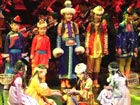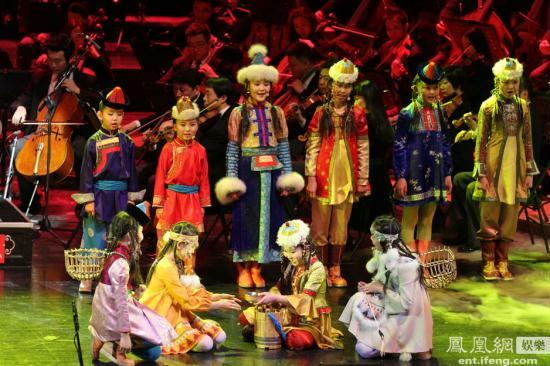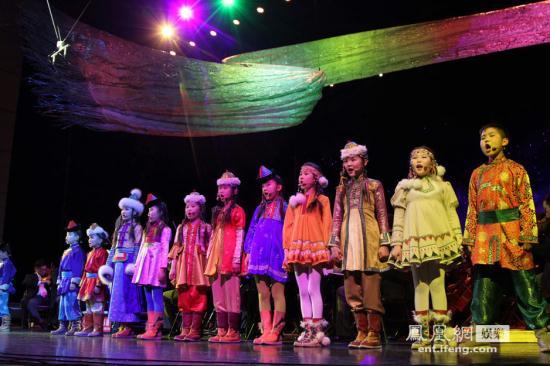| Videos | ? Latest |
|
? Feature | ? Sports | ? Your Videos |
Angelic chorus from Inner Mongolia

 0 Comment(s)
0 Comment(s) Print
Print E-mail
CNTV, January 17, 2012
E-mail
CNTV, January 17, 2012
Some say there's no more gratifying sound than that of children singing. Most would agree after attending a concert by the Quintessenso Mongolian Children's Choir. Forty kids with angelic voices perform with purity of tone and distinctive charm backed by thousands of years of Inner Mongolian tradition.
 |
|
Forty kids with angelic voices perform with purity of tone and distinctive charm backed by thousands of years of Inner Mongolian tradition. |
Their popularity soared to such a height even the world famous New York Philharmonic extends an invitation. Before their departure to the U.S., the group performed in Beijing over the weekend, joined on the stage by the China Philharmonic.
The lyrics are not quite understood by most listeners; nevertheless the singing always causes a shared feeling of euphoria.
The young singers, coming from the far end of Northeast China in the area of the Hulun Buir Grassland, performed centuries old folk songs and nursery rhymes.
The children represented five ancient tribes that call Hulun Buir home. Besides their own mother tongue, most can perform dozens of songs in the languages of the other four tribes as well.
Born in a place where ancestors drew musical inspiration from the mystic forests, rivers, and lakes, a natural singing ability seems to be in their blood.
|
Forty kids with angelic voices perform with purity of tone and distinctive charm backed by thousands of years of Inner Mongolian tradition. |
Ana'er, a choir member, said, "I listened to my father singing all the time. I just knew I could sing well too. When I took part in the first singing contest in school, I won the top prize."
Aolin Wang said, "Almost everyone in my family is a good singer. Whenever we get together, for festivals or other occasions, we sing and dance together."
Set up in 2005, the Quintessenso Mongolian Children's Choir is a chorus of some forty young singers from age 5 to 12. Two thirds of them are children of herdsmen who still live in the pastureland. Being enrolled into the choir also means a better education and more opportunities to see the world.
Wu Hongjie, vice director of Hulun Buir City's Publicity Dept., said, "We have professional mentors instruct their singing. They will also complete elementary education while in the group, studying everything that other children do. For the past five years, we have staged over seventy performances in different places, including Hong Kong and Taiwan. "
Yu Long, the conductor with China Philharmonic, first heard the choir sing in 2009 and was immediately captivated. He was then determined to introduce the group to the world stage. With his recommendation, the choir is set to debut in the U.S. on Jan. 24th when the New York Philharmonic presents its first Gala concert in celebration of the Chinese New Year.
The show will also give audiences a glimpse into distinctive Mongolian culture, such as ethnic clothing, traditional instruments, and even traditional wrestling.
Choir members above 12 years old have to leave the group, but their experience is unforgettable no matter what their future holds.
Wu Hongjie, said, "Only a small fraction of the children will grow toward a professional musical career. My wish is that even if they take up other occupations, such as cooking, they can be happy chefs singing all the time and remembering where they are from."
2012 could be the last year in the choir for Aori Gelema. Her favorite song is one about a little camel that misses her mom, just as she will when she leaves the choir, her home for four years.






